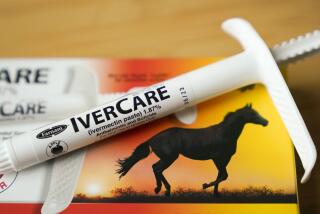Food and the FDA
Even the food industry has come to agree: This country must reform its ineffective food safety system. Beef, peanuts, salsa -- over the last year alone, the American public has been given reason after reason to lose confidence in the food, imported and domestic, that it puts on the table. That’s why we welcome President Obama’s naming of two consumer-minded leaders to head the Food and Drug Administration, his creation of a panel to examine ways of streamlining food safety procedures now spread among several agencies, and his support for more frequent inspections.
Change starts with leadership. In Margaret A. Hamburg, the nominee for FDA commissioner, Obama has found an innovative, diligent and respected expert in public health and safety whose credits include reducing tuberculosis rates in New York City when she was health commissioner there. Her areas of expertise are complemented by those of Joshua Sharfstein, the Baltimore health commissioner who led a push to limit the use and marketing of over-the-counter pediatric cough and cold remedies. Repeated studies have found that the medications, a $2-billion-a-year industry, are no more effective in young children than a placebo, and that the potential for dangerous overdose is high. His work led to labeling reforms.
Previous FDA Commissioner Andrew C. von Eschenbach belatedly began strengthening the agency’s role in food safety, including plans to form partnerships with private companies, improve technology and open more overseas offices. None of this can substitute, though, for frequent, detailed and unannounced inspections; the underfunded FDA checks farm fields once a decade. Obama seeks $1 billion in new funding, much of it to be used to -- pardon the expression -- beef up inspection.
In announcing his nominees on Saturday, the president also echoed a criticism long voiced by this page: The country’s food safety system is unnecessarily complicated and inherently contradictory. No fewer than four agencies, each with its own standards, schedules and points of involvement, were involved in inspecting or investigating the Georgia peanut company whose products killed at least nine people and sickened hundreds. The system cries out for streamlining, preferably by putting all food safety responsibilities under one consumer-oriented agency.
Ensuring a wholesome food supply is one of the government’s most basic responsibilities, necessary to the long-term health of its people and one of this nation’s leading industries. The price the president outlines is high, but the cost of tweaking the system rather than overhauling it is far higher.
More to Read
A cure for the common opinion
Get thought-provoking perspectives with our weekly newsletter.
You may occasionally receive promotional content from the Los Angeles Times.






